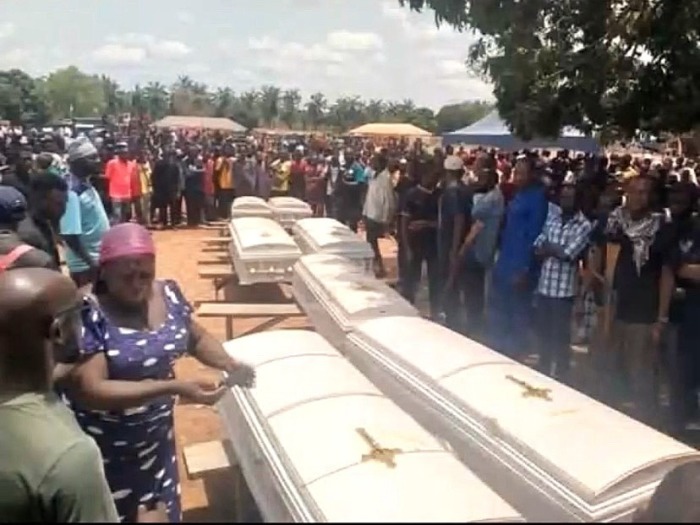Nigerian President Pressured to Declare Military Emergency Amid Rising Violence
A leading legal figure has called on the Nigerian president to institute a military emergency after Fulani herdsmen recently attacked predominantly Christian communities in Benue state. Over the past two weeks, the violence has claimed the lives of at least 86 people, with 46 of those fatalities occurring on the most recent Sunday.

Senior Advocate Sebastine Hon, a respected member of the Nigerian Bar Association, sent a letter to President Bola Tinubu demanding urgent action to stop the escalating bloodshed in his home state. In his communication, he stressed that the security deteriorating in Benue state requires immediate intervention. “The situation in my state is rapidly spiraling out of control,” he warned, urging the president to declare a state of military emergency to restore order.
Earlier in May, growing concerns forced Hon to reach out to military and police leadership, highlighting significant shortcomings in existing security measures. He detailed his efforts in a joint letter addressed to top military and security officials, criticizing the lack of response as recent violent events unfolded throughout the region.
In Gwer West County, numerous attacks have left a devastating toll. Community sources report that at least 68 people were killed in the area over the past two weeks. In one incident on Sunday, 18 individuals lost their lives in the village of Tse Antswam, where assailants not only shot their victims but also set fire to nearby homes. Local leaders confirmed these acts of brutality, describing a scene marked by fire, gunfire, and chaos.
The local government has sent out urgent messages regarding the severity of the situation. One council chairman conveyed his distress over the ongoing violence, noting that many victims have yet to be recovered and that several bodies found at one site underscored the relentless nature of the attacks.
Hon’s letter to President Tinubu included a detailed account of several incidents. He recounted an attack on May 29 in the Agan community, located within Makurdi city, the state capital. Despite the presence of a nearby military barracks, no intervention occurred during the daylight assault. Other attacks mentioned in his letter occurred in areas near Naka and within the Edikwu-Ankpali community, where the failure of security forces to act promptly has alarmed local residents.
An especially harrowing incident involved the Rev. Solomon Atongo, who was ambushed while traveling close to a military checkpoint. Although he survived, only after receiving delayed assistance, his ordeal sharply illustrates the shortcomings in local security measures. Additionally, Catholic clergy have accused the military of negligence, noting that the repeated violence has forced the closure of numerous parishes and the loss of many church members.
Unprecedented Attacks in Apa
The episode in Apa County has been described as unprecedented. On June 1, attacks in Edikwu Ankpali and nearby villages claimed at least 28 lives shortly after worship services had ended. Survivors reported that the assailants not only killed but also abducted several community members during the assault.
Residents detailed the aftermath of the violent outbreak. In one village, a mass burial service was held for the victims, while those displaced by the attack sought refuge in neighboring communities. Local officials confirmed that Christian communities in the region are under severe threat from armed Fulani groups, calling for swift intervention from police and military authorities to prevent further bloodshed.
Some observers suggest that these violent episodes are part of a broader pattern of attacks across Nigeria and the Sahel, where tensions over land and differing ideologies have sometimes erupted into deadly conflict. Although many Fulani do not subscribe to extremist views, a minority who embrace radical Islamist ideologies appear to be using violence in a manner akin to more notorious groups in the region.
As Nigeria continues to be cited as one of the most perilous places for Christians, local communities and leaders are urgently seeking measures that could help stem the tide of violence and restore a sense of security to regions long afflicted by such tragic conflicts.

Rockin’ the faith, one verse at a time!
Growing up, the Bible’s stories deeply impacted me. Now, with over 15 years of preaching experience, I blend timeless teachings with modern technology, making them relevant for today’s world.
Bible Hub Verse is my platform to share historical insights and thought-provoking articles, exploring both familiar and uncommon Christian topics. My passion is building a welcoming online space for everyone to learn, grow in their faith, and discover the Bible’s enduring message.
Join the journey!
God bless you.






